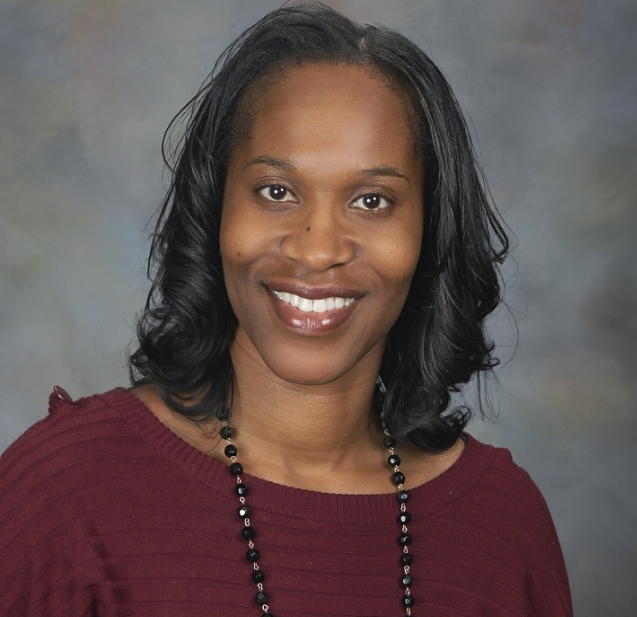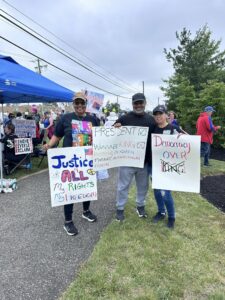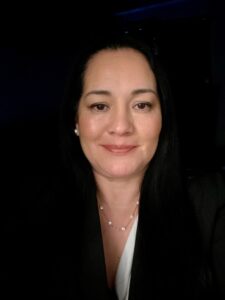Dr. Donnetrice Allison Takes on Justice Clarence Thomas over Diversity, Affirmative Action

Dr. Donnetrice Allison, coordinator of Stockton University's Africana Studies program. Photo courtesy of Stockton University.
OPINION
EDITOR’S NOTE: In October during Supreme Court oral arguments in the Students for Fair Admissions v. University of North Carolina case, which is challenging the use of affirmative action policies in admissions, Justice Clarence Thomas dismissed arguments defending race-based policies, saying he “didn’t put much stock” in it. The lone Black male on the court, Thomas said, “I’ve heard the word diversity quite a few times, and I don’t have a clue what it means. It seems to mean everything for everyone.” FRNJ asked Dr. Donnetrice Allison, the respected chair of the Africana Studies Program at Stockton University to respond.
By Dr. Donnetrice Allison | For Front Runner New Jersey.com
GALLOWAY — The latest attack on Affirmative Action is just one in a long line of attempts to turn back the clock on Black progress. Unfortunately, it is being spearheaded by some of the very people who have benefited from the practice.
In 1954, when the Supreme Court decided that “separate but equal educational facilities for racial minorities” were “inherently unequal” and that schools across the country should move to desegregate, there was significant resistance.
Photo by Steve Petteway/Collection of the Supreme Court of the United States.
In Prince Edward County, Virginia, officials opted to shut down schools entirely rather than comply. They were willing to sacrifice all students’ education rather than allow white children to interact with Black children.
Over time, their school board, along with many others across the country, decided to use state tuition grants to open private schools for white children.
This tactic helped to extend school segregation for decades. At the same time, in higher education, few Black students were afforded the opportunity to attend predominantly white colleges and universities, and those few saw nothing of themselves reflected in the curriculum.
As a result, in the late 1960s, college students across the country, led by Black student organizations, fought for more representation. San Francisco State College stood in front, arguing the need for a Black Studies Department “to create counter images to those white value-oriented courses.”

And after waging “the longest student strike in U.S. history on a college campus,” the first Black Studies Department was established at San Francisco State College in 1968. By the following year, several other predominantly white institutions (PWIs) followed suit. They established Black Studies Departments, eventually leading to the establishment of Women’s Studies, Chicano Studies, Native American Studies, and Asian Studies Departments.
Now, more than 50 years later, Asian students are leading the charge, with longtime Affirmative Action opponent Edward Blum egging them on, to end “race-conscious admissions policies” at colleges and universities nationwide, asserting that such policies cause “severe harm to Asian American communities.”
Oddly enough, this assertion focuses on their admittance to Ivy League universities, where Asian student enrollment is more than double that of Black student enrollment at Brown, Columbia, Cornell, Dartmouth, The University of Pennsylvania, Princeton, and Yale. The only Ivy where the gap is closing is Harvard University, which recently enrolled 27.9% Asian students and 15.2% African American students into the class of 2026.
The other grossly misinformed party in this debate is one of the Supreme Court justices, who benefited from Affirmative Action when he was nominated to the court in 1991 by Republican president George H. W. Bush.
Chief Justice Clarence Thomas recently stated that he didn’t “put much stock” in the benefits of diversity, outright dismissing decades of research that has determined that campus cultural diversity enriches the educational experience by improving communication, challenging stereotypes, and preparing students for the workforce.
By extension, studies have also examined the benefits of workplace diversity and determined that diverse organizations often perform better financially and in terms of productivity and creativity, while diverse faculty and staff benefit students in enumerable ways.
Studies have determined that Black students at the K-12 level perform better and are more likely to go on to college when they’ve had at least one Black teacher; and white students who have the opportunity to learn from teachers of diverse racial and ethnic backgrounds unlearn stereotypes and expand their knowledge and understanding of the world around them.
Having been a college professor for more than 25 years, I can attest to the value-added for my students because they often share those sentiments with me. I have had countless white students share that I am the first Black teacher they ever had, not just in college but in their entire lives.
Further, a white female student recently shared that she learned more in the first month of my class about the contribution of Black people to American history than she’d ever learned before.
Moreover, students of all backgrounds can see that Black women are not the loud, cackling stereotypes that some media would have them believe.
In short, the students at the forefront of this battle against Affirmative Action are wrong; Judge Thomas is wrong; and both are playing right into the hands of those who wish to maintain white supremacy. As such, we all lose.
References:
T’Shaka, O. (2012). “Africana Studies Department History: San Francisco State University,” The Journal of Pan African Studies, vol.5, no.7.
“The Top 5 Ways That Diversity in Education Benefits Students’ Success,” University of Florida, College of Journalism and Communication.
BIO: Dr. Donnetrice Allison serves as Chair of the Africana Studies Program and has worked at Stockton since 2004. She served in various leadership capacities and has also engaged in significant community outreach, including her recent work with several K-12 school districts to assist them in decolonizing their curricula, including more voices of people of color, and developing required courses in African American history.
Follow Us Today On:
Subscribe to FRNJ EXTRA premium content newsletter for exclusive information on this event and other premium content, courtesy of Front Runner New Jersey.com.
Note from AC JosepH Media: If you like this story and others posted on Front Runner New Jersey.com, lend us a hand so we can keep producing articles like these for New Jersey and the world to see. Click on SUPPORT FRNJ and make a contribution that will do directly in making more stories like this available. Thank you for reading.







